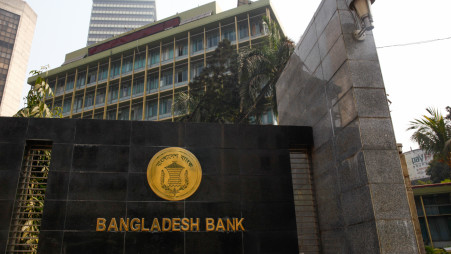Bangladesh Bank to align Credit Guarantee Scheme with CMSME Master Circular
A target is essential to push the sector forward, and 27% has been set considering all relevant factors, says Nurun Nahar, deputy governor of the central bank

Bangladesh Bank is in the process of aligning its Credit Guarantee Scheme (CGS) with the CMSME Master Circular, which will be finalised soon, said Nurun Nahar, deputy governor of the central bank.
She made the remarks at the 13th Financial Sector Development Working Committee (FSDWC) meeting titled "CMSME Financing Master Circular 2025 - An Analysis" organised by Business Initiative Leading Development (BUILD) at its conference room today (16 October).
Nurun Nahar, who also chaired the meeting, acknowledged that while the circular might have some shortcomings, these would be addressed over time. "Nothing can be fully perfect. These issues will be addressed with the progression of time," she said, adding that Bangladesh Bank remains committed to helping the CMSME sector flourish, according to a press release.
Responding to observations that the 27% credit growth target for the CMSME sector may be ambitious, she said, "A target is essential to push the sector forward, and 27% has been set considering all relevant factors."
She emphasised that Bangladesh Bank aims to design policies that will benefit all stakeholders and ensure inclusive growth.
In the keynote presentation, Ferdaus Ara Begum, CEO, BUILD, revealed that for the CMSME credit in the first quarter of 2025, the small segment of businesses received the most loans, while the individual medium sector enterprises had the highest average disbursement. The trading sector dominated CMSME credit with 59%, compared to 24% for manufacturing, and the credit share of women-owned enterprises declined as businesses became more formalised.
The presentation noted that informal entrepreneurs can now access loans up to Tk5 lakh using Unique Business Identification (UBID), Digital Business Identification (DBID), or Personal Retail Account (PRA) instead of a trade license.
Credit limits have risen across all categories since 2019, but the service sector received greater preference than manufacturing. Although alternative credit channels like agents and MFIs have expanded, the Bangladesh Bank's refinancing scheme will not apply to MFI-linked loans.
BUILD identified the process for peer and group financing as complex, with group eligibility cancelled if any member defaults.
BUILD recommended revisiting the CMSME credit target, developing clear guidelines on peer and group financing, raising the manufacturing credit ceiling, and aligning the Credit Guarantee Scheme with Bangladesh Bank policies to make CMSME financing more inclusive and effective.
Ali Zaman, president of SME Owner Associations, urged simplification of SME lending formats, proposing that loans for SMEs and women entrepreneurs be structured as cash-credit or overdraft facilities rather than trade finance, to provide more flexible working-capital support.
Bibhuti Bhushan Biswas, senior general manager, Palli Karma-Sahayak Foundation (PKSF), stated that involving PKSF in the credit disbursement process will contribute to meeting the credit disbursement target of Bangladesh Bank.
Suman Chandra Saha, deputy general manager, SME Foundation, stated that the SME Foundation is cordial to support in the Cluster Development policy and already prepared a guideline in that respect; however the foundation needs offices at the district level. He emphasized the urgent need for a unified SME database, noting SME Foundation's strong interest in supporting its development while requesting government facilitation for effective implementation.
Mansurul Karim, regional director, BSCIC, stated that 10% of the BSCIC plots are allocated for women entrepreneurs.
SM Alomgir Hossain, head of small business, SME Banking at BRAC Bank, highlighted practical constraints around collateral usage. He noted that while regulations permit assets other than land to be accepted as collateral, banking practice has yet to widely adopt this flexibility—particularly in manufacturing, where capital investment is high.
He called for stronger efforts to normalize the acceptance of non-land collateral so manufacturers and SMEs can access suitable finance.



 Keep updated, follow The Business Standard's Google news channel
Keep updated, follow The Business Standard's Google news channel















